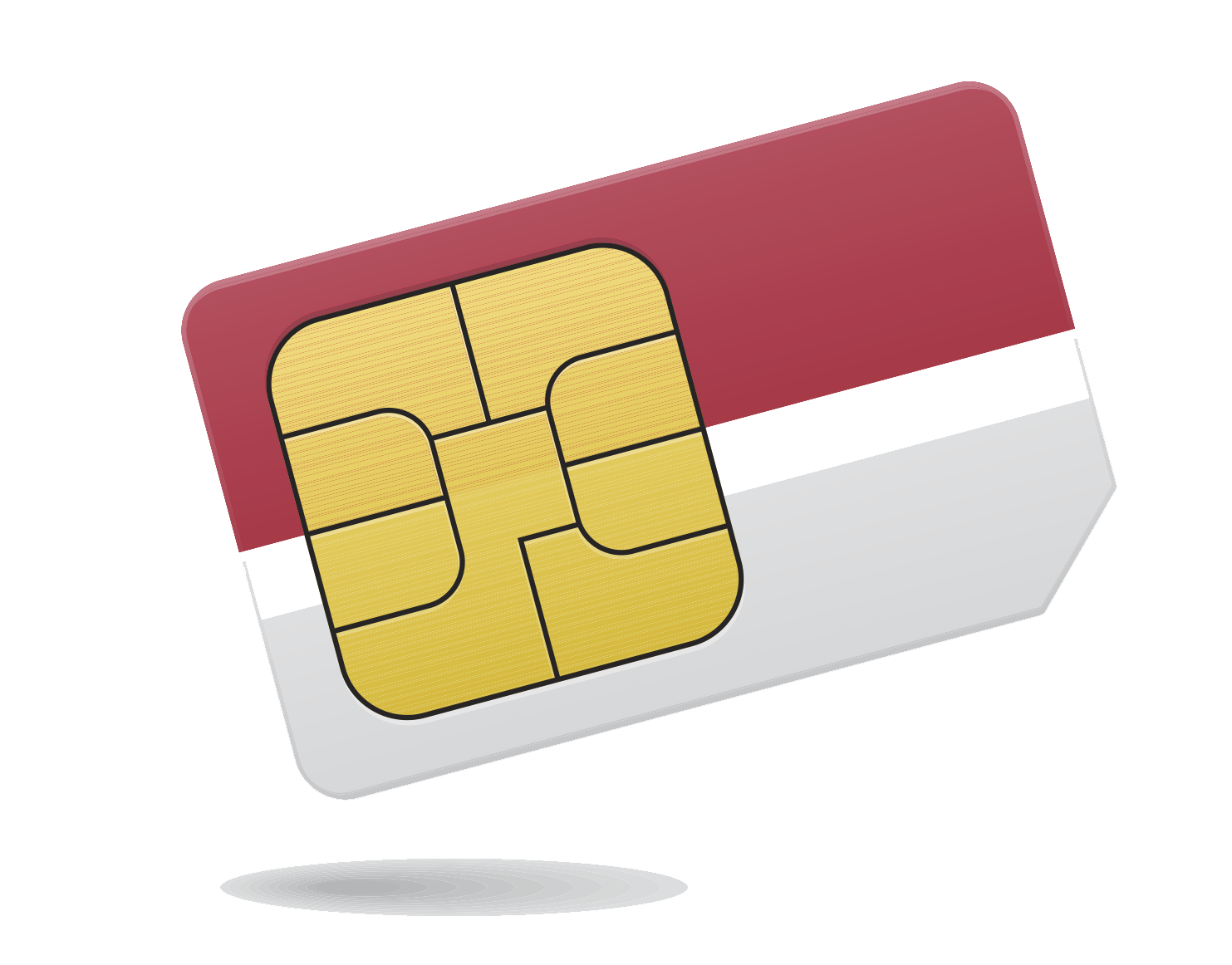
Stay Connected in Saudi Arabia
Navigate, share, and stay in touch with our comprehensive eSIM guide for Saudi Arabia.
1Introduction to Saudi Arabia as a Travel Destination
Saudi Arabia is an increasingly popular destination, whether for pilgrimage (Hajj/Umrah), business, or tourism under the new visas. If you're a new international traveler here, getting your phone online is a priority for navigation, communicating with your group, and accessing apps. This guide covers how to get internet in Saudi Arabia for tourists, highlighting the use of international eSIMs as well as local SIM card options. We'll compare the convenience of eSIM providers (like Airalo, Holafly, Nomad) to buying a Saudi SIM (STC, Mobily, Zain), and give you insights on coverage differences (major cities vs. desert areas). With the right preparation, you can easily stay connected in the Kingdom from the skyscrapers of Riyadh to the valleys around Al-Ula.
2Mobile and Internet Infrastructure
Saudi Arabia has invested heavily in telecom infrastructure – expect modern networks with extensive coverage. The three main mobile operators are STC (Saudi Telecom Company), Mobily, and Zain.
STC is the largest and has the widest coverage, reaching virtually 100% of populated areas in the country. STC's network blankets not just cities but also smaller towns and many remote highways. If you are traveling to rural or desert regions (for example, visiting remote historical sites or driving between cities), STC is known to maintain signal where others might not. They also lead in 4G speed and have an extensive 5G rollout in major urban centers. Mobily (the brand name for Etisalat's operation in KSA) is the second largest. Mobily has very good coverage in cities and towns and along most main roads, though slightly less reach than STC in the farthest remote locales. Mobily is known for competitive packages and solid network performance, and it's expanding its 5G in many cities. For the average tourist staying in populated areas, Mobily's network will feel just as robust as STC's. Zain is the third major provider. Zain's coverage has historically been a bit more limited outside major cities, but it still offers coverage in a large part of the country and all big cities. Users sometimes find that in very remote or smaller communities, Zain might have weaker signal compared to STC/Mobily. However, Zain has improved and does provide 4G in a lot of areas and even 5G in some cities. Zain competes on price and value, so it's popular with cost-conscious users who stay mostly in urban zones. In practice, major cities (Riyadh, Jeddah, Dammam, Medina, Mecca, etc.) have excellent coverage on all networks – you'll usually have strong 4G or 5G with any provider. In holy sites like Makkah and Madinah, the networks are beefed up to handle millions of pilgrims (STC and Mobily in particular ensure good service during Hajj). Between cities, along highways, STC has the edge; for instance, if you drive from Riyadh to Jeddah, an STC user might have continuous coverage most of the way, whereas Mobily and Zain could have a few dead zones in very sparsely populated stretches. If you're sticking to cities and well-trodden routes, you won't notice huge differences among carriers – all three invest in urban infrastructure. For extremely remote adventures (edge of the Empty Quarter desert, etc.), even STC might drop, as those areas are vast and uninhabited. 5G is available mainly in urban centers – Riyadh, Jeddah, Dammam, etc., with STC and Mobily leading the 5G availability.
Network Providers Overview
| Provider | Coverage | Notes |
|---|---|---|
| STC (Saudi Telecom Company) | Widest coverage reaching virtually 100% of populated areas, including remote highways | Best for rural/desert travel, leading 4G speed, extensive 5G in urban centers |
| Mobily | Very good coverage in cities, towns, and along most main roads | Etisalat's brand in KSA, competitive packages, expanding 5G coverage |
| Zain | Covers all big cities and a large part of the country | More limited outside major cities, competes on price and value |
3Guide to Getting Mobile Internet
Local SIM vs eSIM
When it comes to getting your phone online in Saudi Arabia, you have a choice between using an international eSIM (purchased beforehand) or getting a local SIM card from STC, Mobily, or Zain. International eSIM means you can have your data plan ready to go before you even arrive. Providers like Airalo, Holafly, and Nomad offer eSIM packages for Saudi Arabia. You purchase the plan online, install the eSIM profile on your phone (ensure your device is eSIM-compatible and unlocked), and the moment you land and turn off airplane mode, your phone connects to a local partner network. The big advantage is immediate connectivity and zero hassle at the airport – no need to find a SIM shop after a long flight or worry about language barriers. These eSIMs are usually data-only (no Saudi phone number for calls/SMS, which for short trips isn't a big deal). They typically partner with one of the main networks: for instance, one eSIM might use Zain's network with 5G, another might use Mobily's network, etc.
Where to Buy
Getting a Saudi SIM is straightforward, but there are a few things to know. You can purchase prepaid SIMs for STC, Mobily, or Zain at the airport or in the city. Major international airports like Riyadh (RUH) and Jeddah (JED) have telecom operator counters in arrivals – often open 24/7. However, note that at some airports, SIM counters might not be available or open late at night. For example, a traveler report indicates it was not possible to buy a prepaid SIM upon late arrival and they had to go to a city store. So your mileage may vary – planning for an eSIM as backup isn't a bad idea. To buy a local SIM, you need to provide your passport and visa info for registration. The process usually involves scanning your fingerprint as well (Saudi law requires biometric verification for SIM issuance). It only takes a few minutes. Local SIMs are relatively affordable: STC has tourist packages like perhaps 5 GB + local calls for 2 weeks at SAR 100, etc. Mobily and Zain have similar bundles. For example, SAR 150 (~$40 USD) might get you 70 GB of data plus some calls/texts – local SIM deals often provide large data volumes. If you're a heavy data user or staying longer, this is cost-effective. Also, you get a local Saudi number, which could be useful if you need to receive codes (some services like Uber or local banking might send SMS). However, for many tourists, using WhatsApp (linked to your home number) suffices for communication.
4Major Mobile Providers and Plans

Airalo
Airalo's Saudi Arabia eSIM is branded "Red Sand" and is a popular choice due to its affordable plans. According to some sources, Airalo's eSIM in KSA runs on Zain's network. Zain provides good urban coverage and 5G in cities, so you'll have fast data in places like Riyadh, Jeddah, Mecca, Medina, etc. In very remote areas, Zain might be weaker than STC, but if you won't stray far from city limits or main routes, it's perfectly fine. Airalo eSIMs allow tethering (it's just regular data), so you can hotspot your laptop or other devices. Activation is straightforward via the Airalo app or QR code, and support is available in-app if needed. Airalo's plans are some of the most cost-effective per GB (often beating roaming or other eSIM providers), making it arguably the best eSIM for Saudi Arabia for value-conscious travelers.
| Plan | Data | Validity | Price | Features |
|---|---|---|---|---|
| Saudi Arabia 1GB | 1 GB | 7 days | ~$5 USD |
|
| Saudi Arabia 3GB | 3 GB | 30 days | ~$13 USD |
|
| Saudi Arabia 5GB | 5 GB | 30 days | ~$20 USD |
|
| Saudi Arabia 10GB | 10 GB | 30 days | ~$36 USD |
|

Nomad
Nomad offers eSIM plans for Saudi that are competitive. Nomad's eSIM in Saudi Arabia reportedly works with Mobily's network (with 5G support). If true, that's great because Mobily has wide coverage and high-speed data. On Mobily, you'll get coverage in nearly all the places STC would, except perhaps the uttermost remote areas – but again, most tourist itineraries won't hit those extremes. Tethering is supported on Nomad as well; you manage everything through Nomad's app (which is user-friendly for setup and top-ups). Nomad sometimes offers promo codes (like "WELCOME10" for 10% off first purchase, etc.), which can sweeten the deal. Using Nomad in major Saudi cities should be seamless – you'd likely see "Mobily 4G/5G" on your signal indicator. One advantage: Mobily's network on 5G is pretty robust in big cities, so if you have a 5G phone, you might enjoy very fast speeds.
| Plan | Data | Validity | Price | Features |
|---|---|---|---|---|
| Saudi Arabia 5GB | 5 GB | 30 days | ~$15 USD |
|
| Saudi Arabia 10GB | 10 GB | 30 days | ~$27 USD |
|

Holafly
Holafly focuses on unlimited data eSIM plans. They are pricier upfront but you get peace of mind about data limits. Holafly's Saudi eSIM offers unlimited data for durations like 5 days ($19 USD), 10 days ($34), 15 days ($47), 20 days ($54), 30 days (~$64), etc. These plans allow you to use data freely (fair use applies, but usually plenty for normal use – if you were to stream in HD 24/7 you might hit some de-prioritization). Holafly's partner network in Saudi wasn't explicitly stated in their materials, but given their general partnerships, it could likely be STC or Mobily for such an important destination. In any case, expect broad coverage and 4G speeds. Tethering on Holafly eSIMs is allowed but with a data cap (~1 GB/day for hotspot), which is fine for occasional laptop use but not for heavy downloads. Holafly is great if you're not price-sensitive and you prefer to avoid monitoring usage. For example, if you're attending an event or on a work trip and need constant connectivity without worrying about topping up, unlimited can be worth it.
| Plan | Data | Validity | Price | Features |
|---|---|---|---|---|
| Saudi Arabia 5 Days | Unlimited | 5 days | $19 USD |
|
| Saudi Arabia 10 Days | Unlimited | 10 days | $34 USD |
|
| Saudi Arabia 15 Days | Unlimited | 15 days | $47 USD |
|
| Saudi Arabia 30 Days | Unlimited | 30 days | ~$64 USD |
|

Local Saudi SIM Cards
Getting a local SIM card in Saudi Arabia is a good option for longer stays or if you need a local phone number. The three main providers (STC, Mobily, and Zain) all offer prepaid options for tourists. Local SIMs usually provide more data for your money compared to international eSIMs, though they require in-person registration with your passport and fingerprint scan.
| Plan | Data | Validity | Price | Features |
|---|---|---|---|---|
| STC Tourist SIM | Various packages available | Typically 2 weeks to a month | From SAR 100 (~$27 USD) |
|
| Mobily Prepaid | Various packages | Typically 1 month | Competitive with STC |
|
| Zain Prepaid | Various data bundles | Typically 1 month | Often cheaper than STC/Mobily |
|
5Device Compatibility and Activation
For eSIMs, your device must be eSIM-compatible and unlocked. This includes iPhone XR/XS and newer, Samsung Galaxy S20 and newer, Google Pixel 3 and later, and many other recent smartphones. For physical SIM cards, your phone simply needs to be unlocked to use with Saudi carriers. All Saudi networks use standard GSM technology compatible with most international phones.
6Tips and FAQs for Staying Connected
SIM Availability and Shop Hours
If you need a local SIM, note that shops in Saudi Arabia can have unusual hours, especially around prayer times. Many stores (including telecom shops) will close briefly several times a day for prayer. In big malls, this might be less noticeable as some remain open. Plan to get your SIM during normal business hours (say 10am to 10pm, with possible short breaks). At airports, SIM shops might or might not be open late at night. Riyadh's King Khalid Airport and Jeddah's King Abdulaziz Airport usually have 24/7 service, but if you arrive during a massive influx (like many pilgrims at once), be prepared for lines or consider using an eSIM until you can get a physical SIM.
Registration Requirements
When buying a local SIM, you'll be asked for your passport and sometimes your local address (hotel address is fine) and phone contact. Fingerprints are taken as part of the SIM registration (a quick electronic scan of your index finger). This is mandatory for all customers (Saudi national or foreigner) as a security measure. Don't be alarmed; it's standard procedure. Once done, your SIM is tied to your identity.
SIM Bundles
Ask the staff for the best prepaid bundle for your needs. You might say, for example, "I'll be here for 2 weeks, mostly using data, little calling." They might suggest a package like 10 GB + some minutes. Often, SIM cards sold to tourists come preloaded with a plan. Keep an eye out for tourist SIM offers – STC used to have a special tourist SIM with a combo of data and international minutes. If you specifically need to call home, some packages include international call minutes or you can add on an international calling bundle for a fee.
Internet Censorship
Be aware that Saudi Arabia has internet filtering. Some websites and VoIP services could be restricted. In recent years, WhatsApp, Skype, FaceTime calls were unblocked, so you can use them now. But occasionally, certain VoIP or messaging features might be inconsistent. Using a VPN is a topic many travelers consider – technically, personal use of VPNs isn't illegal, but obviously using it to access blocked content is against local regulations. That said, if you find any site blocked (could be some news or adult sites, etc.), you'll see a message. For general travel-related use (maps, social, messaging), you won't likely encounter issues.
Using Data for Navigation
Saudi cities are car-centric and sprawling. Having mobile data for Google Maps or other navigation is extremely helpful (especially if you're driving yourself or even to direct a taxi). Google Maps, Careem (the local ride-hailing, now owned by Uber), and Uber all require data. You can pre-download maps of certain areas offline in Google Maps as a backup. For example, download the map of Mecca or Riyadh on hotel Wi-Fi so even if you lose signal briefly you have the map data.
Language
The telecom apps (STC's app "MySTC", Mobily's app, Zain's app) have English versions. Consider downloading the app for whichever SIM you use – they're useful for tracking data usage and buying additional packages. Text messages from the carrier about your balance or promotions might be in Arabic. Use Google Translate's camera mode to translate if needed, or ask a hotel staff to help interpret any important SMS.
Free Wi-Fi
You'll find free Wi-Fi in many places – malls, cafes, hotels, and airports. In fact, the Haramain high-speed train and many public areas in major cities offer Wi-Fi. However, to use some public Wi-Fi, they may require a one-time SMS verification by sending a code to a Saudi number (common at airports or some city Wi-Fi). If you only have eSIM without a Saudi number, you can't receive that SMS; another reason a local SIM can be useful. But overall, your mobile data will likely be your mainstay because it's more secure and consistent.
Apps to Install
If you're coming for Umrah/Hajj, Saudi Arabia has a few required apps like Tawakkalna (for COVID status, etc.) and Eatmarna/ Nusuk for pilgrimage permits. These apps need data to function (though they can work offline to display your status once updated). Ensure you have data when needed (e.g., at checkpoint).
Tethering and Multiple Devices
If you have multiple devices (phone, tablet, etc.), an approach could be: use a local SIM in a portable Wi-Fi hotspot or secondary phone and tether your main phone to it. Or vice versa, keep your main phone on eSIM and tether a secondary device. Tethering is allowed on local SIMs (you're using your data how you like). On unlimited eSIMs like Holafly, recall the tether cap. Plan accordingly if you need to share connection with travel companions; maybe get one eSIM and one local SIM to have two data sources (and as a backup for each other).
Rural Travel Precautions
If you will travel far outside cities (desert treks, etc.), even though STC has the best reach, there are still areas with no signal. It's wise to inform someone of your travel plans in remote regions and not solely rely on cell service for emergencies. In major highways there are often emergency call boxes or patrol police. But off-road in the desert, you might consider renting a satellite phone or at least traveling with a guide who has one, if going truly off-grid.
Conclusion
Saudi Arabia offers excellent mobile connectivity options for travelers, with modern networks providing good coverage across most populated areas. For most visitors, especially those on shorter trips or arriving at odd hours, international eSIMs like Airalo (using Zain's network) or Nomad (on Mobily) provide the most convenient solution – simply activate upon arrival and you're connected immediately. Holafly's unlimited data plans offer peace of mind for heavy users, though at a premium price. For longer stays or those needing a local phone number, STC provides the widest coverage (particularly valuable if traveling to remote areas), while Mobily and Zain offer competitive alternatives especially for urban travelers. Remember that major cities and pilgrimage sites have excellent coverage on all networks, with 5G increasingly available in urban centers. By choosing the right connectivity option, you can easily navigate from the skyscrapers of Riyadh to the ancient sites of Al-Ula, share your pilgrimage experiences in real-time, or simply stay in touch with loved ones while exploring the Kingdom.